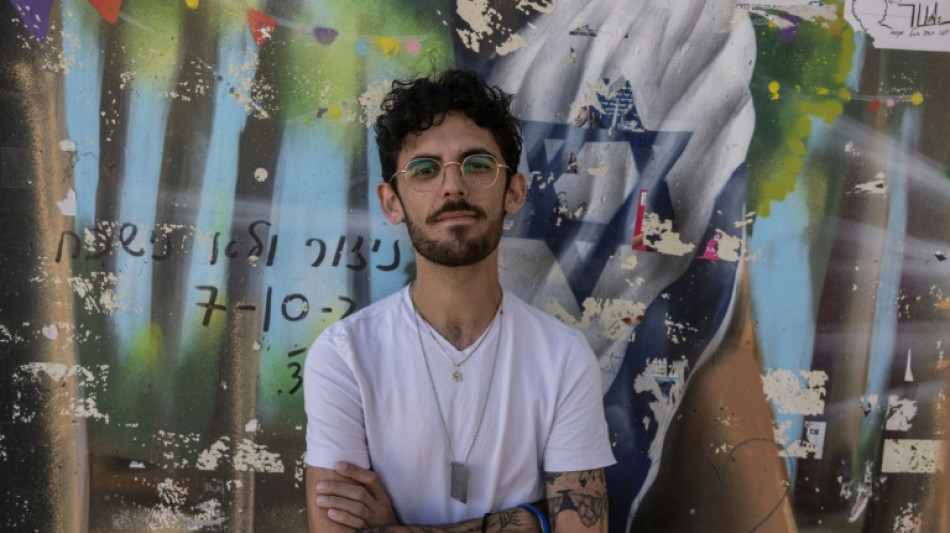
-
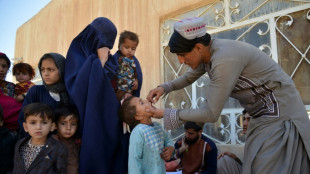 More than 10% of Afghans could lose healthcare by year-end: WHO
More than 10% of Afghans could lose healthcare by year-end: WHO
-
Stocks rise as auto shares surge on tariff break hopes
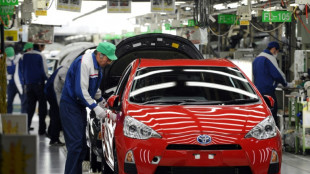
-
 Facebook chief Zuckerberg testifying again in US antitrust trial
Facebook chief Zuckerberg testifying again in US antitrust trial
-
Pakistan court refuses to hear Baloch activist case: lawyers
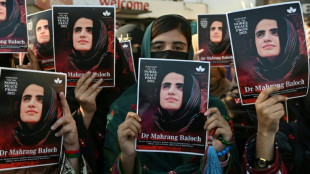
-
 Inzaghi pushing Inter to end San Siro hoodoo with Bayern and reach Champions League semis
Inzaghi pushing Inter to end San Siro hoodoo with Bayern and reach Champions League semis
-
Arsenal's Odegaard can prove point on Real Madrid return

-
 China's Xi begins Malaysia visit in shadow of Trump tariffs
China's Xi begins Malaysia visit in shadow of Trump tariffs
-
Andrew Tate accusers suing for 'six-figure' sum, UK court hears
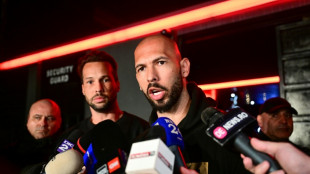
-
 Macron to honour craftspeople who rebuilt Notre Dame
Macron to honour craftspeople who rebuilt Notre Dame
-
Van der Poel E3 'spitter' facing fine

-
 Khamenei says Iran-US talks going well but may lead nowhere
Khamenei says Iran-US talks going well but may lead nowhere
-
Nearly 60,000 Afghans return from Pakistan in two weeks: IOM
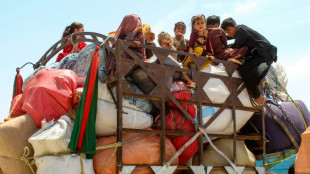
-
 Auto shares surge on tariff reprieve hopes
Auto shares surge on tariff reprieve hopes
-
Sudan war drains life from once-thriving island in capital's heart
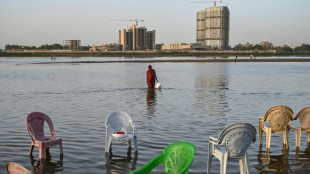
-
 Trump trade war casts pall in China's southern export heartland
Trump trade war casts pall in China's southern export heartland
-
Ukraine's Sumy prepares to bury victims of 'bloody Sunday'
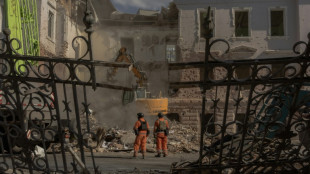
-
 Iraq sandstorm closes airports, puts 3,700 people in hospital
Iraq sandstorm closes airports, puts 3,700 people in hospital
-
French prisons targeted with arson, gunfire: ministry
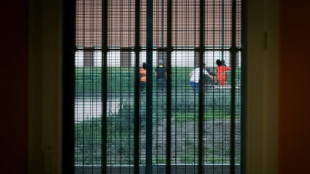
-
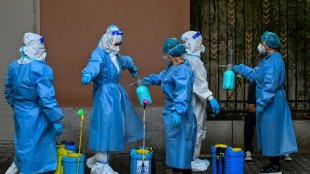 Pandemic treaty talks inch towards deal
Pandemic treaty talks inch towards deal
-
Employee dead, client critical after Paris cryotherapy session goes wrong
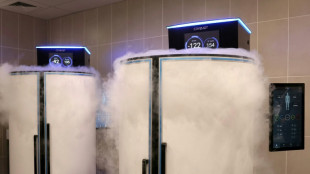
-
 Howe will only return to Newcastle dugout when '100 percent' ready
Howe will only return to Newcastle dugout when '100 percent' ready
-
Journalist recalls night Mario Vargas Llosa punched Gabriel Garcia Marquez
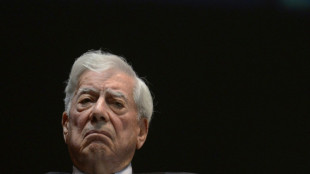
-
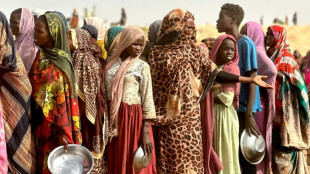 Sudan marks two years of war with no end in sight
Sudan marks two years of war with no end in sight
-
Vance urges Europe not to be US 'vassal'
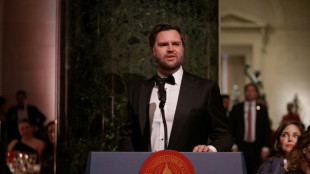
-
 China tells airlines to suspend Boeing jet deliveries: report
China tells airlines to suspend Boeing jet deliveries: report
-
Stocks rise as stability returns, autos surge on exemption hope

-
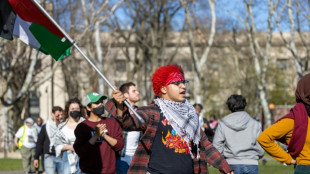 Harvard sees $2.2bn funding freeze after defying Trump
Harvard sees $2.2bn funding freeze after defying Trump
-
'Tough' Singapore election expected for non-Lee leader
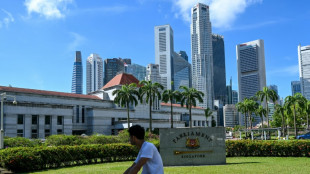
-
 Japan orders Google to cease alleged antitrust violation
Japan orders Google to cease alleged antitrust violation
-
Stocks rise as stability returns, autos lifted by exemption hope
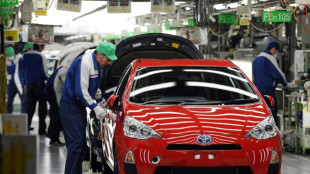
-
 Malawi's debt crisis deepens as aid cuts hurt
Malawi's debt crisis deepens as aid cuts hurt
-
Danish brewer adds AI 'colleagues' to human team

-
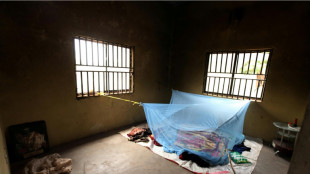 USAID cuts rip through African health care systems
USAID cuts rip through African health care systems
-
Arsenal target Champions League glory to save season

-
 Kane and Bayern need killer instinct with home final at stake
Kane and Bayern need killer instinct with home final at stake
-
Mbappe leading Real Madrid comeback charge against Arsenal

-
 S. Korea plans extra $4.9 bn help for chips amid US tariff anxiety
S. Korea plans extra $4.9 bn help for chips amid US tariff anxiety
-
Xi's Vietnam trip aiming to 'screw' US, says Trump
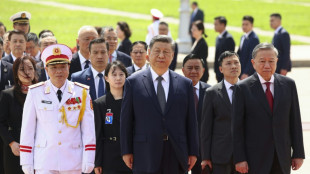
-
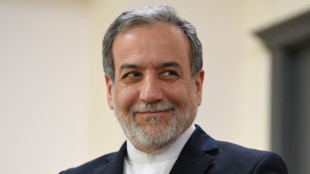 Iran's top diplomat to visit Russia after US nuclear talks
Iran's top diplomat to visit Russia after US nuclear talks
-
China accuses US spies of Asian Winter Games cyberattacks
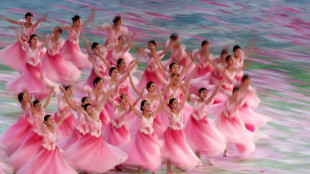
-
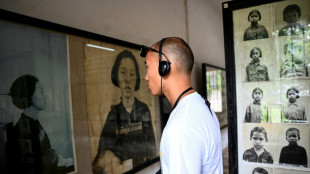 Cambodia genocide denial law open to abuse, say critics
Cambodia genocide denial law open to abuse, say critics
-
Holocaust remembrance and Gaza collide in Brussels schools
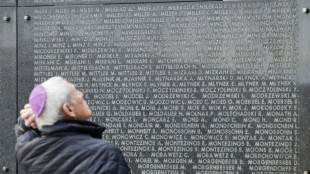
-
 The miracle babies who survived Ravensbruck
The miracle babies who survived Ravensbruck
-
Asian stocks mixed as stability returns, autos lifted by exemption hope
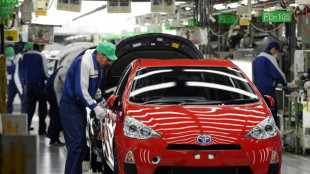
-
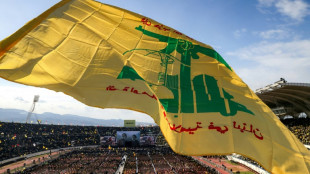 Disarming Lebanon's Hezbollah no longer inconceivable: analysts
Disarming Lebanon's Hezbollah no longer inconceivable: analysts
-
London hosts talks to find 'pathway' to end Sudan war
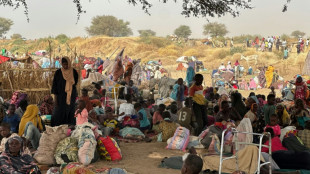
-
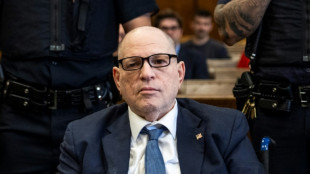 Harvey Weinstein New York retrial for sex crimes to begin
Harvey Weinstein New York retrial for sex crimes to begin
-
Meta news ban intensifying Canadians' legacy media break
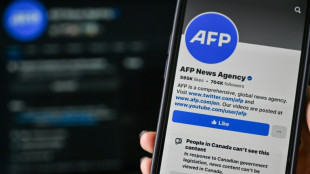
-
 All Black wing Tele'a announces Japan switch
All Black wing Tele'a announces Japan switch
-
Chinese EV battery giant CATL posts 33% surge in Q1 profit


From deadly rave to recovery: Israeli study examines MDMA's effect on trauma
Artillery fire echoed from nearby Gaza as Shye Klein-Weinstein slowly walked around a memorial honouring the nearly 400 people killed at the Nova music festival in Reim, southern Israel, on October 7, 2023.
The 28-year-old photographer and survivor of Hamas's attack recalled names and events from that fateful day -- some of which he captured on film, documenting the final moments of his fellow revellers.
Klein-Weinstein, an immigrant from Canada who had arrived in Israel just four months prior to the attack, also recalled another detail from the festival: taking ecstasy.
While still visibly shaken by the horrific experience, early findings from a study by researchers at Israel's Haifa University suggest that the MDMA Klein-Weinstein and others at the festival took that night may have been helpful in cushioning the impact of the trauma they endured.
"I came to the Nova with my cousin and several friends... It was my first music festival ever," Klein-Weinstein told AFP.
They "each took a half or a quarter pill of ecstasy", he said, going on to describe the unfolding chaos and his frantic escape.
- New findings -
The Haifa University study, which monitored 657 Nova survivors -- both those who took drugs and those who did not -- found in initial results that individuals under the influence of MDMA exhibited "significantly improved intermediate outcomes compared to those who were under the influence of other substances or no substances at all".
The study, which was recently accepted for publication in the World Psychiatry journal, noted that "the MDMA group reported increased feelings of social support, more social interactions and enhanced quality of sleep" after the event, "yielding reduced levels of mental distress and reduced PTSD symptom severity".
"That is a very unique finding -- it was never reported before, because it was never studied before, because it never happened before," said Roee Admon, one of the study's lead researchers.
Admon explained that while trauma research is well established, the attack on a gathering like the Nova festival has opened a new window into the effects of trauma under the influence of mind-altering substances.
"We don't know anything about the response to trauma when people, during the attack or traumatic event, are under the influence of specific substances like cannabis, alcohol, and psychedelics like LSD and MDMA," he said, adding that such a mass trauma event, where around 4,000 people were exposed to the same elements at the same time, is rare.
"I would feel like if something like that happened to me, I would want to be as much in control as possible, clean from any foreign influences or substances," said Admon. "But that's not what we found, and that's why it was very surprising."
Still, Admon was quick to caution that while MDMA may have offered a psychological buffer, the overall levels of PTSD among Nova survivors remained extremely high.
He also noted that the study was limited by "survivor bias", as researchers cannot learn from those killed in the attack.
- 'Love drug' -
At the Nova memorial, Klein-Weinstein said he is still struggling with trauma and has been undergoing therapy. Still, he believes the MDMA he took that night may have eased his symptoms somewhat.
But, he added, he did not want people to think MDMA "saved us or protected us... I don't know anybody who didn't die because they were on MDMA. They were just as vulnerable as anyone else, and we were all in the same situation."
Still, he continued, ecstasy is "known as the love drug. It makes you just want to hug your friends and dance and laugh and smile."
"When everything was happening, I noticed that I wasn't really afraid for myself," he recalled.
"The only concern I had was that I wouldn't be able to help my friends or that something would happen to them, and I would be totally useless, unable to do anything -- that was a terrible feeling, not being in control."
Vered Atzmon-Meshulam, a psychologist specialising in trauma and head of the Resilience Division at the rescue and recovery organisation ZAKA, told AFP she was not surprised by the study because previous research has suggested MDMA could help treat post-traumatic stress disorder
In 2023, Australia became the first country to legalise the use of MDMA to treat PTSD.
"This research is very important for continuing to develop tailored responses for extreme trauma," Atzmon-Meshulam said.
"We must move forward to the next phase, which includes treatments that use psychedelics for healing in a true and widespread manner, not just for the people who were at Nova, but many others who suffer from post-trauma."
F.Dubois--AMWN